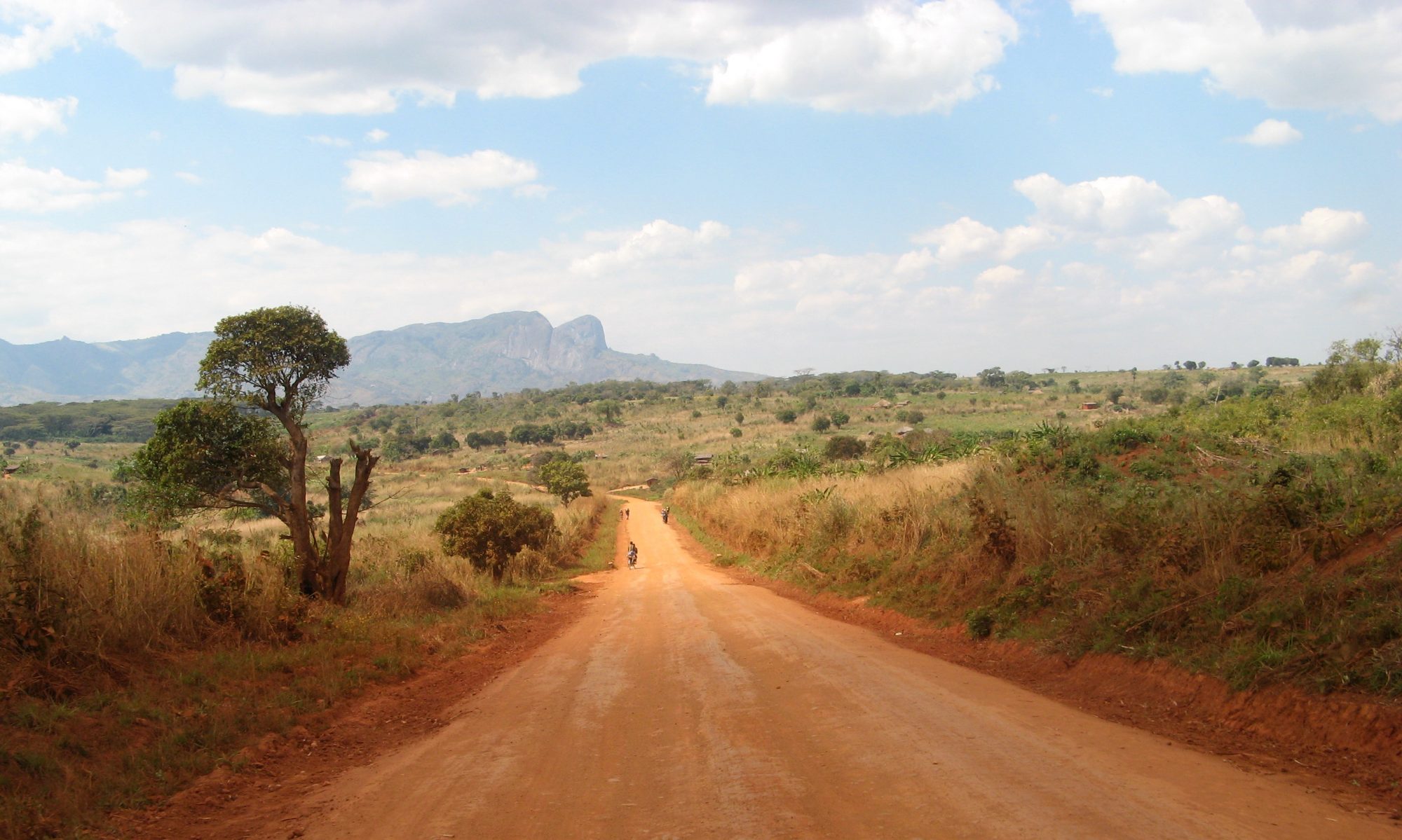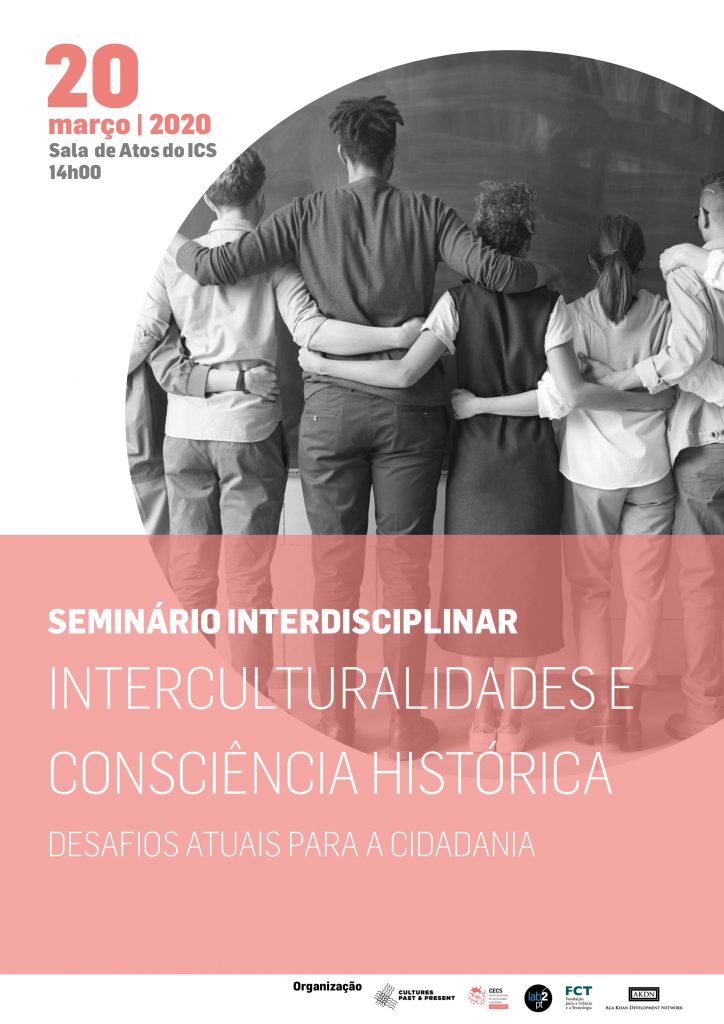The Interdisciplinary Seminar Interculturalities and historical awareness: current challenges for citizenship will be held on March 20, 2020, and brings together several researchers to share experiences around studies on historical awareness, social representations, narrative, identity, cultural memory and practices and experiences in the system educational, thinking about the current intercultural, transnational and global dimensions. The Seminar will be held in the Sala de Atos (at ICS), at the University of Minho, from 2 pm to 5 pm.
This activity is organized by the Memories, cultures and identities: how the past weights on the present-day intercultural relations in Mozambique and Portugal?, by the Center for Communication and Society Studies (CECS) and the Laboratory of Landscapes, Heritage and Territory (LAB2PT).
Entry is free subject to registration by: cultures_past_present@ics.uminho.pt
The seminar will include the participation of Alberto Sá, Francisco Mendes, Isabel Macedo, Jacob Cupata, Marília Gago, Moisés de Lemos Martins and Rosa Cabecinhas and Sheila Khan and Alice Balbé as moderators.
Alberto Sá: Assistant Professor at the Department of Communication Sciences, where he is deputy director and teaches in the areas of audiovisual, multimedia, communication design and digital publishing. Graduated in History and Social Sciences (Teaching) and with a Master’s Degree in Medieval Urban History, he is a Ph.D. in Communication Sciences from the University of Minho. He is a researcher at CECS where he has developed research work on memory studies, in particular the technological mediation of memory in the digital age. He is a member of the research team of the AUDIRE project (Audio Repository: saving sound memories) and is part of the Moda (Monitoring Online Discourse Activity) project. He was co-leader of Working Group 2 of the e-COST Action project IS1205 (“Social psychological dynamics of historical representations in the enlarged European Union”). He is the coordinator of a scientific-cultural event CURTAS CC (Exhibition of Audiovisual and Multimedia works by undergraduate and master students of Communication Sciences – University of Minho). Currently, he participates in a collective study on colonialism and the liberation struggles present in the history manuals of Mozambique, from a diachronic perspective.
Alice Balbé: Researcher at the Communication and Society Research Centre and the project “Memories, cultures and identities: how the past weights on the present-day intercultural relations in Mozambique and Portugal?”. Ph.D. in Communication Sciences from the University of Minho, her research interests include representations, Portuguese speaking, environmental communication, and digital social networks.
Francisco Mendes: Professor of Theory of History in the Department of History of the Institute of Social Sciences at the University of Minho. Researcher at the Landscape, Heritage and Territory Laboratory (Lab2PT). Currently, it is part of an international curriculum reform project for Basic Education in Guinea-Bissau (RECEB), in a partnership between the National Institute for the Development of Education in Guinea-Bissau (INDE) and the University of Minho.
Isabel Macedo holds a Ph.D. in Cultural Studies from the University of Minho and University of Aveiro, in the area of Communication and Culture. Her doctoral thesis is entitled “Migrations, cultural memory and identity representations: film literacy in promoting intercultural dialogue”. She is a researcher at the Communication and Society Research Centre and integrates several national and international associations in the area of communication, education and visual culture. She co-edited the Comunicação e Sociedade, journal 34, dedicated to the theme “Communication Sciences and Lusophone Studies” and Vista – Visual Culture Journal, 2, entitled “Cultural Memory, Image, Archive”. Some of his main works are: “Representations of Dictatorship in Portuguese Cinema” (2017), in co-authorship; “Interwoven migration narratives: identity and social representations in the Lusophone world” (2016), in co-authorship, and “Young people and Portuguese cinema: a (de) colonization of the imaginary? ” (2016).
Jacob Lussento Cupata: Degree in Educational Sciences in the option of Teaching History at the Agostinho Neto University, Master in Intercultural Relations at the Open University of Lisbon, assistant professor at the Higher Institute of Educational Sciences of Cuanza Sul (ISCED / CS) at the Katyavala University Bwila (UKB), teaching the subjects of African History, Pedagogical Practices and Cultural Anthropology. He is developing the doctoral research project in Cultural Studies, under the theme “Social representations of the History of Africa in the Angolan educational system”.
Marília Gago: Professor of Methodology in the teaching of History and Professional Internship in the Master of History Teaching at the Department of Integrated Studies in Literacy, Didactics and Supervision at the Institute of Education of the University of Minho. Researcher at the Transdisciplinary Research Center “Culture, Space and Memory (CITCEM-Faculty of Arts of the University of Porto. Currently, she is part of an international project for the curricular reform of Basic Education in Guinea-Bissau (RECEB), in a partnership between the National Institute for the Development of Education of Guinea-Bissau (INDE) and the University of Minho. Ph.D. in Education, Teaching Methodology of History and Social Sciences and Master’s and post-doctorate under the Historical Consciousness Research Project: theory and practices II, financed by FCT.
Moisés de Lemos Martins: Full Professor at the University of Minho, he is the Director of the Communication and Society Research Centre (CECS) at the University of Minho, which he founded in 2001. He holds a Ph.D. in Social Sciences at the University of Human Sciences in Strasbourg, in 1984. Teaches and investigates social semiotics, sociology of communication and culture, intercultural communication, Portuguese-speaking studies. He is the Director of the magazine Comunicação e Sociedade and also of the Revista Lusófona de Estudos Culturais. In associative terms, he was President of Sopcom, Confibercom, and Lusocom. Among his works are Crisis in the Castle of Culture (2011); L’imaginaire des mediums (with Michel Maffesoli, 2011), Portugal Illustrated in Postcards (with Madalena Oliveira, 2011); Paths in Social Sciences (2010); Communication and Lusophony (with Helena Sousa and Rosa Cabecinhas, 2006); Language, Truth and Power (2002); The Eye of God in Salazar’s Discourse (1990).
Rosa Cabecinhas: Director of the Doctoral Program in Cultural Studies at the University of Minho. She is a professor in the Department of Communication Sciences at the Institute of Social Sciences and researcher at the Communication and Society Research Centre. She has developed research of an interdisciplinary nature and integrates several national and international associations in the areas of communication, psychology, education and cultural studies. Her main research interests combine the areas of intercultural communication, social memory, social representations, social identities, social discrimination, and diversity. Among her works, the following books stand out: Preto e Branco: The naturalization of racial discrimination (2017, 2nd edition) and, in co-authorship Intercultural Communication: Perspectives, Dilemmas, and Challenges (2017, 2nd edition).
Sheila Khan: Sociologist, a researcher at the Communication and Society Research Centre, University of Minho. Ph.D. in Ethnic and Cultural Studies from the University of Warwick, in her academic career she has focused her attention on post-colonial studies, with a special focus on relations between Mozambique and Portugal, including the issue of Mozambican immigrants in Portugal. Among the themes, she has worked on are contemporary Mozambican and Portuguese history and literature, narratives of life and identity from the global South, authorities of memory and post-memory. It is worth mentioning her recent books, Portugal in Colored Pencil: South of a post-coloniality (Almedina, 2015); Visits to João Paulo Borges Coelho: readings, dialogues and futures (et al., 2017, Colibri); Mozambique on the Move: Challenges and Reflections (with Paula Meneses and Bjorn Bertelsen, Brill, 2018). Currently, Ph.D. researcher of the project funded by the European Research Council, EXCHANGE and member of the research team of the FCT / Aga Khan project on intercultural relations between Mozambique and Portugal.


